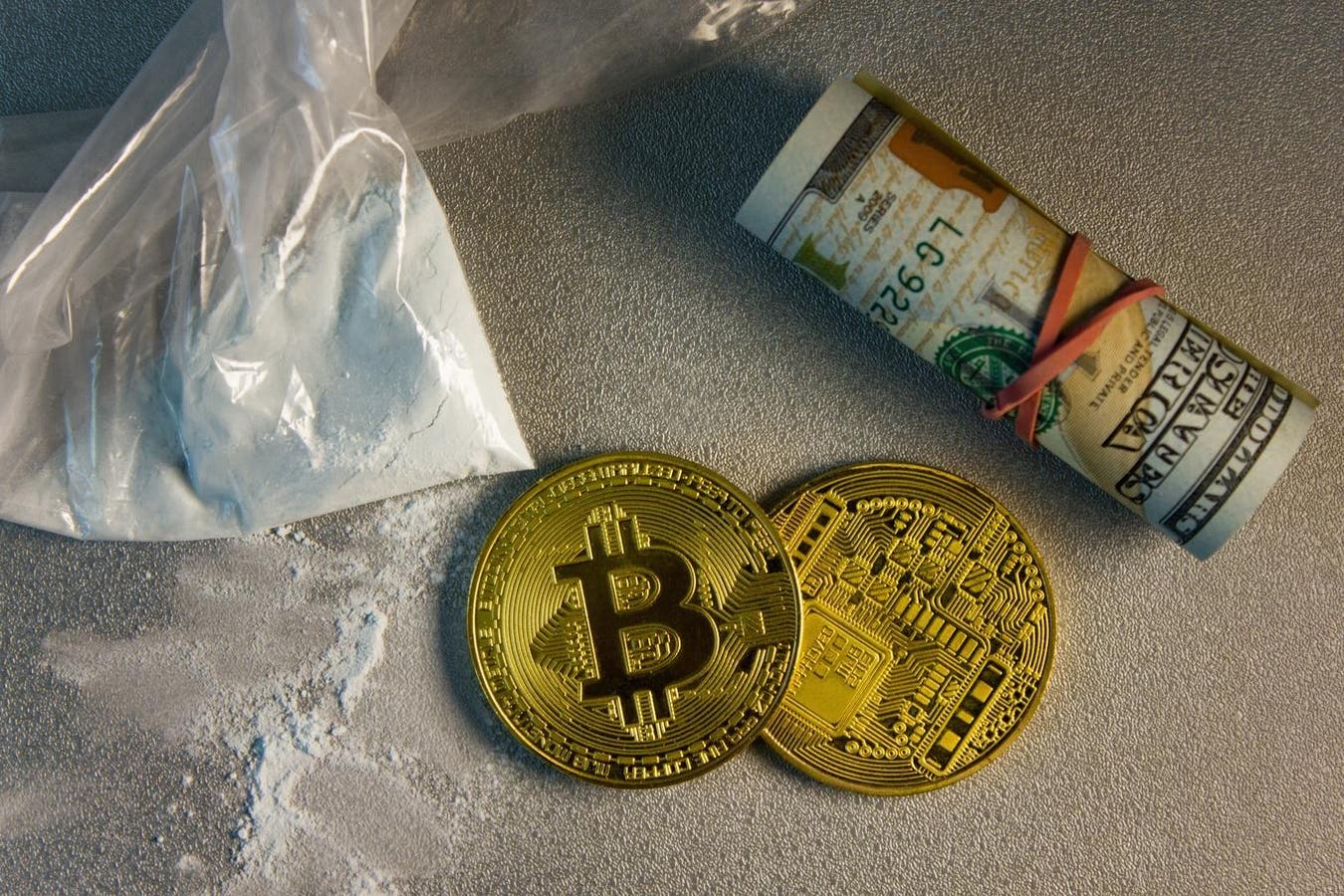The Wiretap is your weekly digest of cybersecurity, internet privacy and surveillance news. To get it in your inbox, subscribe here.
For over a decade the DEA infiltrated a cartel money laundering operation turning some money into crypto, now worth $1.5 million.
getty
For over a decade, the DEA ran a money laundering operation for a Columbian narcotics trafficking cartel. In total, the agency and its sources took in $19 million in drug money, funnelling cash into bank and cryptocurrency accounts controlled by sources, agents and the cartel. At the end of it all, two heroin traffickers were charged as a direct result of the operation.
That’s according to both a source familiar with the investigation and a recently-unsealed seizure warrant, which shows how the DEA was deeply embedded in the cartel’s attempts to evade law enforcement, both in shifting old school fiat currencies and digital alternatives. The DOJ declined to comment.
While two arrests may not seem like a good return for so many years of effort, former federal agents told Forbes that there were likely tangential investigations that benefitted from the undercover operation. Besides, they said, if the government hadn’t laundered money for cartels to get investigative insight and, eventually, get the funds into its own hands, the work would’ve been done by criminals with more nefarious intent.
Sherine Ebadi, a former FBI agent who spent years investigating laundering networks, said it was likely the DEA had many other similar operations in motion and that this case was one small part of a wider net. “if you want to gather information on large scale, global criminal organizations like cartels and things like that, you’re going to have to increase your investigative methods to more risky methods,” Ebadi, now a managing director of forensic investigations and intelligence at consulting firm Kroll, said. “Is there a risk to laundering money? Absolutely. You’re assisting them in laundering the proceeds, but at the same time, you’re also aware of it. You can see it. If you don’t do it, somebody else is going to do it.”
The DEA’s investigation began in 2009 when it had sources infiltrate various networks of money launderers across the U.S., Colombia and Mexico, all of them affiliated with a Cali, Colombia, drug trafficking organization referred to by the DEA as the Pecoso. Likened by the DOJ to the Sinaloa cartel, it had mostly focused on large-scale cocaine shipments. To conceal the source of their income, it recruited individuals who would exchange or deposit cash across different accounts.
The undercover agents and their sources managed to get themselves recruited into those roles, meeting with cartel money brokers in American streets, parking lots or shopping malls to collect cash, often wrapped in plastic heat-sealed bags and heavily perfumed to mask the odor of narcotics from sniffer dogs. In some cases, law enforcement picked up bags of cash in excess of $100,000 before divvying up the funds and spreading them across bank accounts.
In early 2018, the Cartel directed undercover agents to move over $150,000 in one bank account into a Coinbase account, exchanging it for over 13 bitcoin. That was done via a source at Xapo Bank, a Gibraltar-based bank that combines traditional finance with virtual currency assets.
For each successful money pick up and subsequent laundering, the agents and their sources took a commission, which was usually between 2% and 16% of the total amount laundered.
The government is now trying to claw back more money from the operation. One of the two men was ordered to forfeit $1 million last year. With the seizure warrant, the Justice Department is attempting to retrieve the crypto, which, thanks to the rise in value of bitcoin, is now worth over $1.5 million.
Got a tip on surveillance or cybercrime? Get me on Signal at +1 929-512-7964.
THE BIG STORY:
UK Backs Down In Apple Privacy Fight, US Spy Chief Says
(Photo by Jaap Arriens/NurPhoto via Getty Images)
Jaap Arriens/NurPhoto
Director of national intelligence Tulsi Gabbard said that the U.K. government has backed down in its attempt to force Apple into allowing it backdoor access to iCloud accounts.
The U.K. Home Office had reportedly used the Investigatory Powers Act to try to get Apple to allow a bypass of its end-to-end encrypted service. Apple subsequently chose to remove the option of U.K. users to have fully encrypted iCloud products.
Gabbard posted on X, “The U.K. has agreed to drop its mandate for Apple to provide a “back door” that would have enabled access to the protected encrypted data of American citizens and encroached on our civil liberties.” As the Home Office isn’t commenting, it’s unclear whether it’s pursuing the same access with non-American accounts. Apple also hasn’t said whether or not it’ll re-introduce fully-encrypted iCloud services to users.
Stories You Have To Read Today
As many as 3,700 Afghans who were relocated to the U.K. after assisting the country’s troops in Afghanistan have been hit by a data breach that exposed their passport details as well as administrative data related to their resettlement. It’s the second breach affecting the community to be disclosed in the last month.
HR tech giant Workday said it suffered a data breach after hackers accessed information from a third-party customer relationship database. Though the company didn’t offer many specifics, it said the database stored information like customer contact information and warned about potential social engineering risks against those affected.
Winner of the Week
The National Security Agency and the Cybersecurity and Infrastructure Security Agency have released a report offering guidance on how to protect critical infrastructure from devastating cyberattacks. Find it linked here.
Loser of the Week
404 Media has looked into goings on at Tea, an app whose aggressive Facebook ad campaigns promised a safe space for women to warn about men on dating apps, but ended up suffering three breaches, exposing its users’ personal data.
More On Forbes








